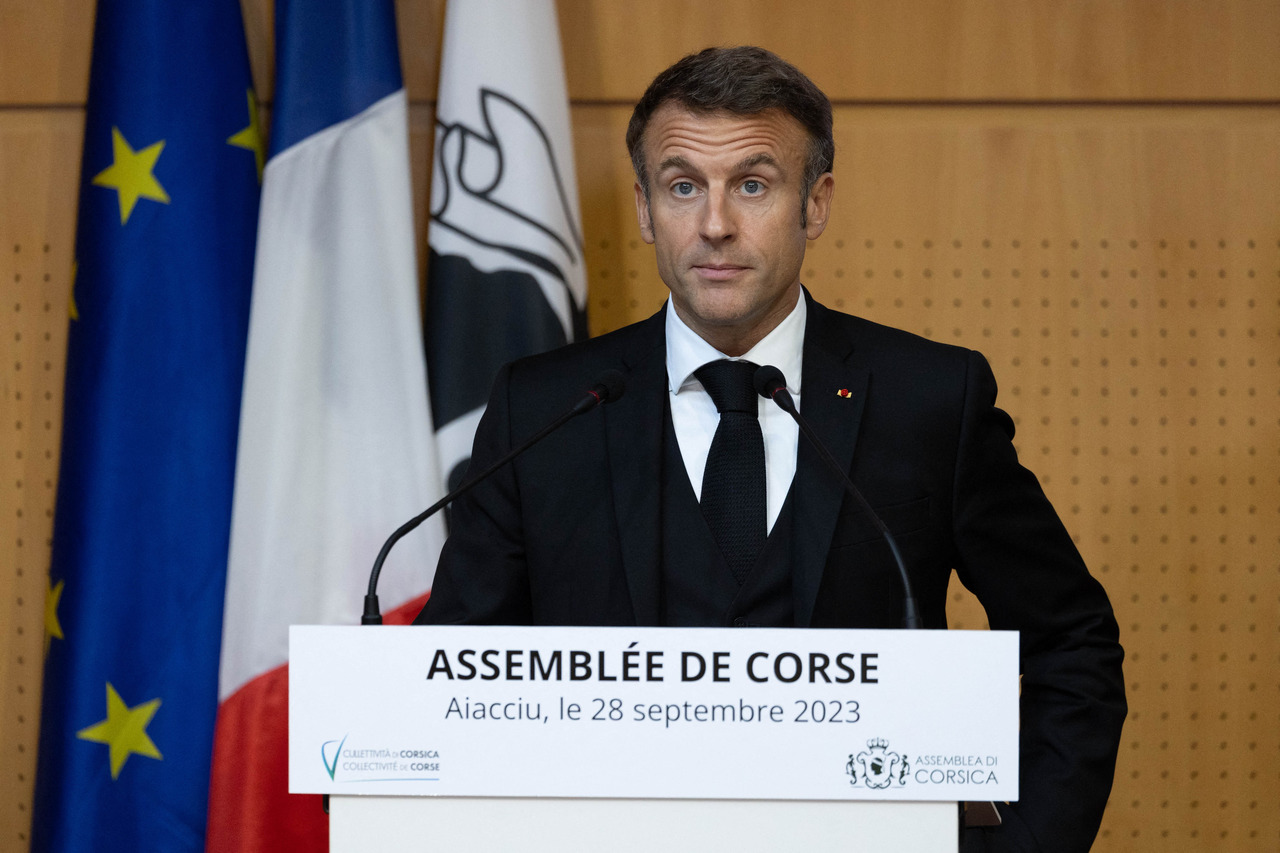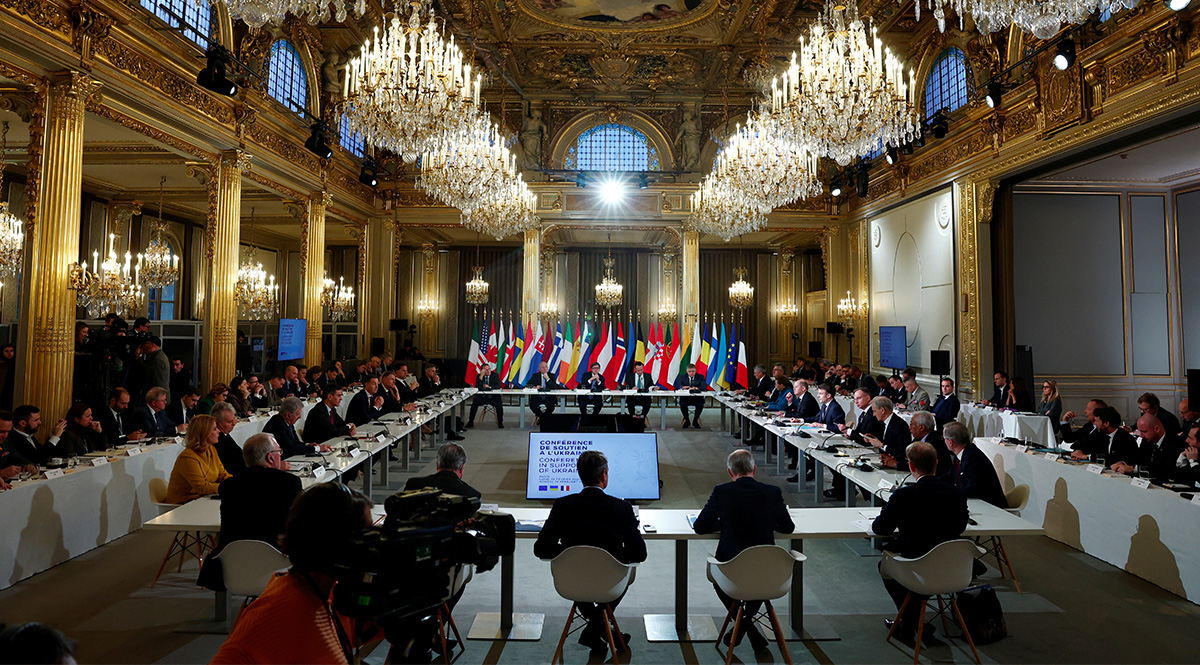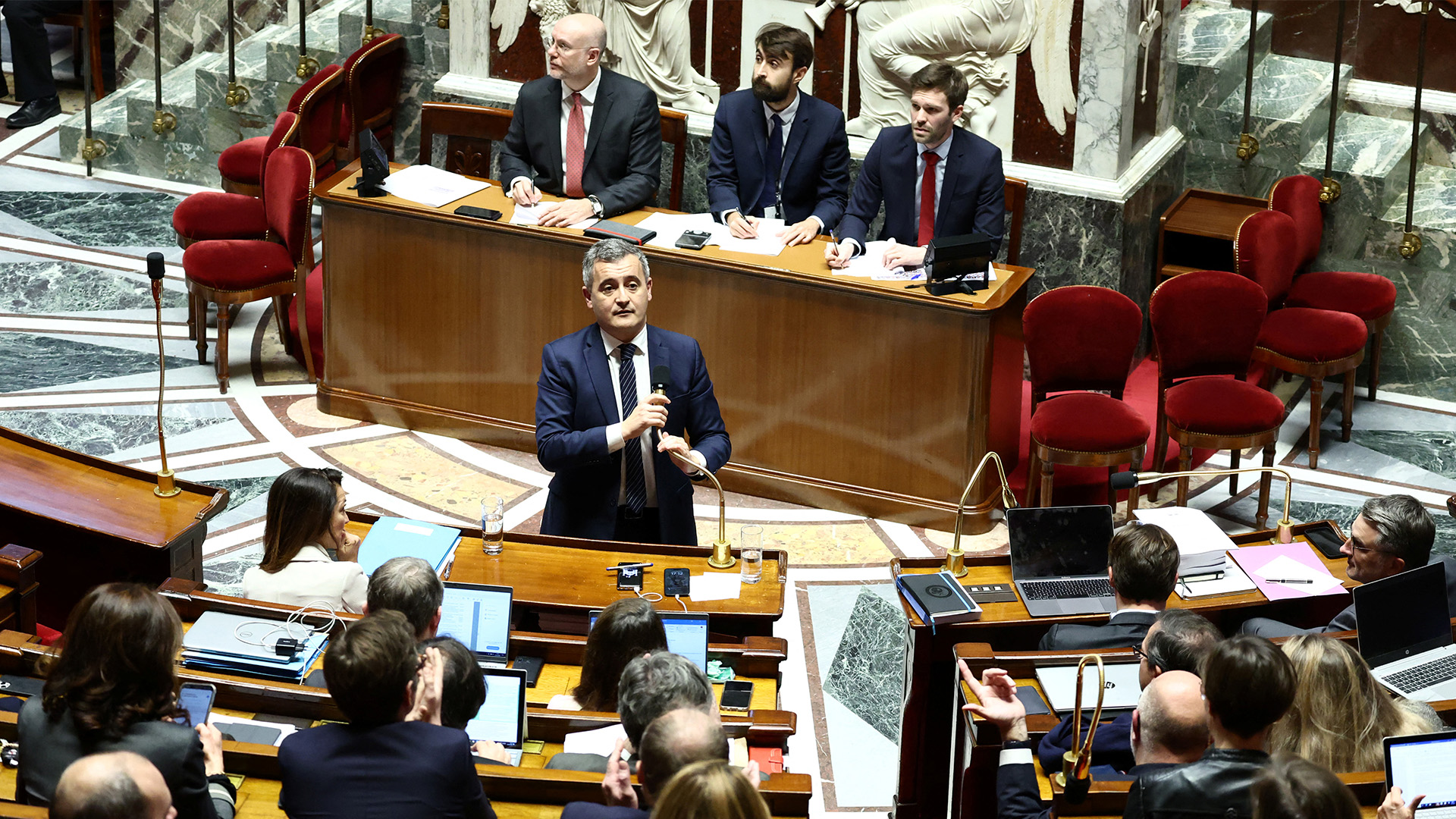Macron Offers New Ideas for Europe in Second Sorbonne Speech
On 25 April, President Emmanuel Macron presented at the Sorbonne his vision of the future of Europe. Macron’s goal was to define the framework of the European debate in the context of the ending EU institutional cycle and to strengthen the position of the presidential camp for the purposes of the national election campaign to the European Parliament (EP). The speech confirmed the main directions in France’s European policy, emphasising the need for radical changes to tighten cooperation in defence, monetary, and investment policies.
 CHRISTOPHE PETIT TESSON / Reuters / Forum
CHRISTOPHE PETIT TESSON / Reuters / Forum
What was the political context of the speech?
The speech was a continuation of the vision of Europe outlined by Macron, also at the Sorbonne, at the beginning of his first presidential term in 2017, in which the issue of building European sovereignty and revising treaties was at the centre. The need to once again comprehensively present the desired directions of EU policy reforms results from the fundamental change in the international situation, the main challenges of which, according to Macron, are Russia’s aggressive policy and the marginalisation and loss of competitiveness of the EU in relation to China and the United States. Macron sought to inspire the programme of the next European Commission (EC). He also tried to influence the dynamics of the national EP election campaign by redirecting attention to European issues and weakening the focus on internal problems, such as the complex economic and social situation in France, raised by the opposition. According to polls, the far-right National Rally enjoys the greatest support, overtaking the presidential camp by about 10-13 percentage points.
What changes in EU policy does the French president propose?
Macron referred to the progress in European policy made over the last seven years, including building technological and industrial sovereignty, protecting external borders, and changing energy policy. At the same time, he emphasised that the EU needs to increase investment and innovation and simplify regulations significantly. He called for, among others, doubling the EU budget and changing European trade and competition regulations, which are intended to reduce the dominance of China and the U.S., which massively subsidise their economies. Macron wants to introduce a “prosperity pact” in which a system of European preferences protect strategic industries, including defence, the space sector, artificial intelligence, and green technologies. This is to be achieved by financing from new sources, such as a financial transaction tax. The president also believes that the European Central Bank’s policy should not be driven solely by inflation targets but also by an economic growth target and even climate goals. He also confirmed his willingness to accelerate the creation of a capital markets union, enabling investment in the wider European economy.
How does Macron perceive European security and defence policy?
He called for a European defence initiative, emphasising the importance of the European pillar of NATO and the French nuclear deterrent as an indispensable element of European defence. The initiative is intended to increase strategic proximity between European countries. He emphasised that regardless of the U.S. administration and its involvement in the war in Ukraine, Europe will not be a U.S. priority in the coming decades. The French president supports the joint issuance of debt to stimulate defence industry cooperation and has called for the introduction of European preferences in the purchase of military equipment to reduce excessive dependence on non-European, mainly American, equipment and the creation of European cybersecurity and cyberdefence capabilities. The launch of the second stage of the European Intervention Initiative and the development of European regional security and defence strategies in the Mediterranean, Africa, Indo-Pacific, and Arctic regions are intended to build strategic intimacy between European countries. Macron wants to establish a European Military Academy to train future European military and civilian staff and accelerate the implementation of the assumptions of the EU Strategic Compass, especially the creation of a European rapid deployment force.
What impact could Macron’s speech have in the national and European context?
Although Macron wanted to set the tone for the internal pre-election debate in France with his speech, it will not change the electorate’s preferences or significantly reduce the gap with the far right. The presented vision of the future of Europe will constitute an essential framework for the debate on the new EP and EC, which will be selected after the June elections. Despite support among the Member States for a more robust industrial policy, consensus will be difficult to achieve for some of the French proposals, such as joint debt, building a capital markets union, or creating a new rapid deployment force. Macron’s 2017 speech addressed Germany mainly. It was met with a lack of reaction from Chancellor Angela Merkel regarding the possibility of joint efforts to implement the French proposals. Good cooperation with Germany will be vital to the broad acceptance of Macron’s vision at the European level. Chancellor Olaf Scholz’s response, although emphasising the will of France and Germany to build a strong Europe, remains perfunctory. The demands to strengthen the EU’s resilience are beneficial from the point of view of Poland, which emphasises that the development and security of the state based on both European integration and transatlantic cooperation remain crucial.





